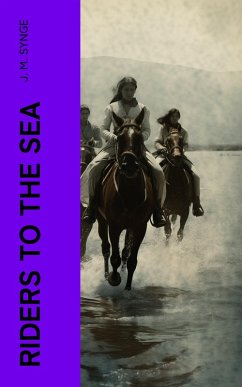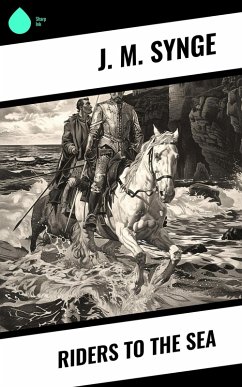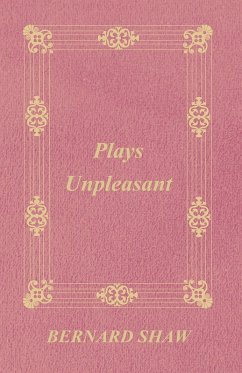
Riders to the Sea (eBook, ePUB)
Enriched edition. An Irish Tragedy of Grief and Resilience
Kommentar: Glover, Jillian / Redaktion: Good Press
Versandkostenfrei!
Sofort per Download lieferbar
1,99 €
inkl. MwSt.
Weitere Ausgaben:

PAYBACK Punkte
0 °P sammeln!
J. M. Synge's dramatic masterpiece, "Riders to the Sea," encapsulates the stark and poignant struggles of an Irish family living on the edge of a treacherous sea, navigating the interplay between fate and resilience. The play, composed in a lyrical and evocative style, carefully intertwines dialogue with rich, descriptive imagery, capturing the essence of rural Irish life in the early 20th century. Set against the backdrop of the Aran Islands, Synge employs naturalistic elements alongside symbolic gestures to reflect the relentless forces of nature and the inevitable tragedy that befalls the c...
J. M. Synge's dramatic masterpiece, "Riders to the Sea," encapsulates the stark and poignant struggles of an Irish family living on the edge of a treacherous sea, navigating the interplay between fate and resilience. The play, composed in a lyrical and evocative style, carefully intertwines dialogue with rich, descriptive imagery, capturing the essence of rural Irish life in the early 20th century. Set against the backdrop of the Aran Islands, Synge employs naturalistic elements alongside symbolic gestures to reflect the relentless forces of nature and the inevitable tragedy that befalls the characters, making it a vital piece of Irish literature in the modernist canon. J. M. Synge, a prominent figure in the Irish Literary Revival, was deeply influenced by his experiences among the Irish peasantry, as well as his admiration for the oral traditions of folk storytelling. His travels to the Aran Islands provided a visceral context for the creation of this play, allowing him to authentically portray the lives and beliefs of those for whom the sea symbolizes both sustenance and destruction. Synge's unique perspective on the human condition, coupled with his roots in the Irish landscape, undoubtedly fueled his exploration of mortality and sacrifice in "Riders to the Sea." This compelling work is not only a hallmark of Irish theatre but a universal exploration of grief and endurance. Readers and theatre enthusiasts alike will appreciate Synge's profound engagement with human emotions and the existential struggles faced by his characters. "Riders to the Sea" stands as a poignant reminder of the delicate balance between life and death, and is highly recommended for anyone interested in the confluence of nature and humanity within the literary landscape. In this enriched edition, we have carefully created added value for your reading experience: - A succinct Introduction situates the work's timeless appeal and themes. - The Synopsis outlines the central plot, highlighting key developments without spoiling critical twists. - A detailed Historical Context immerses you in the era's events and influences that shaped the writing. - A thorough Analysis dissects symbols, motifs, and character arcs to unearth underlying meanings. - Reflection questions prompt you to engage personally with the work's messages, connecting them to modern life. - Hand-picked Memorable Quotes shine a spotlight on moments of literary brilliance. - Interactive footnotes clarify unusual references, historical allusions, and archaic phrases for an effortless, more informed read.
Dieser Download kann aus rechtlichen Gründen nur mit Rechnungsadresse in A, B, BG, CY, CZ, D, DK, EW, E, FIN, F, GR, H, IRL, I, LT, L, LR, M, NL, PL, P, R, S, SLO, SK ausgeliefert werden.













